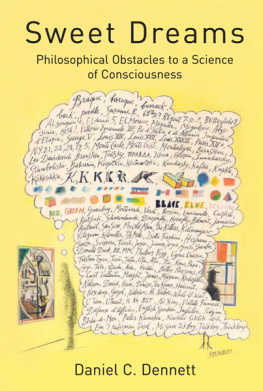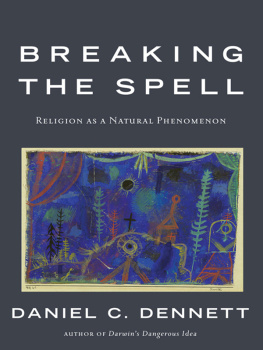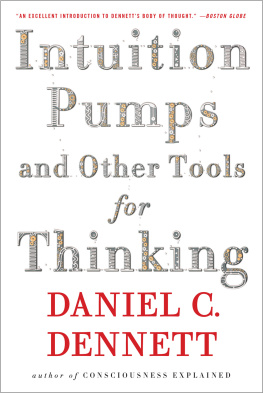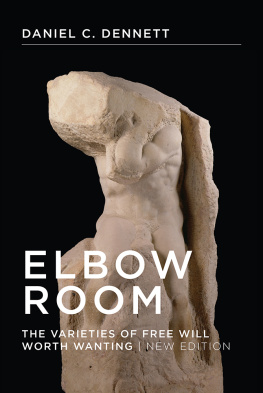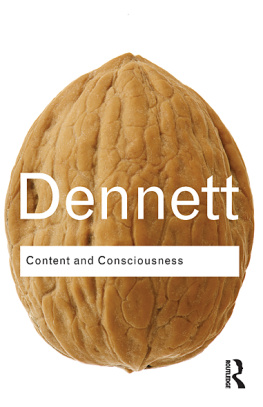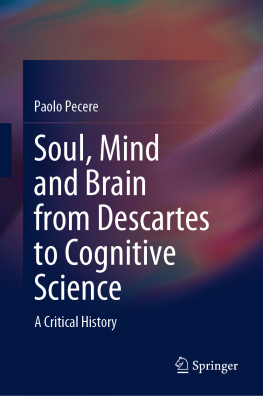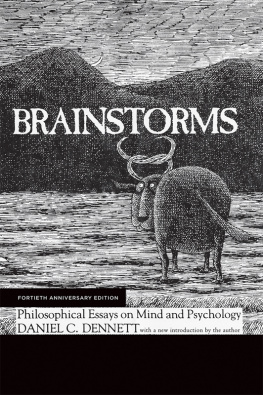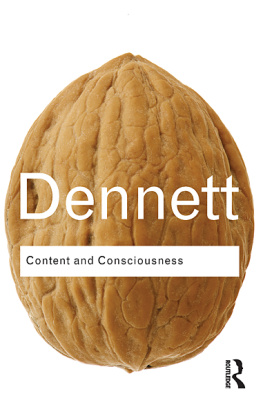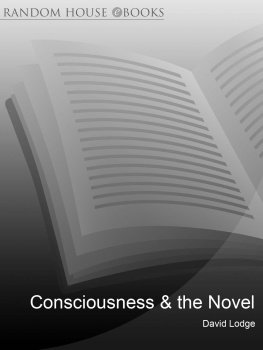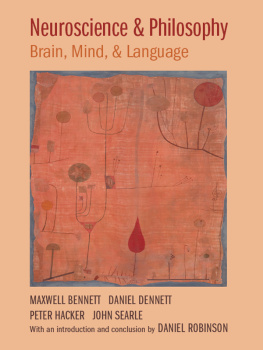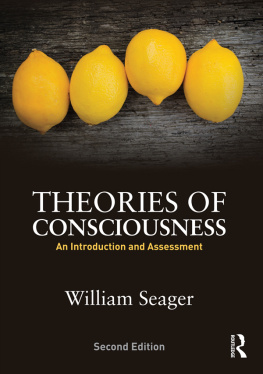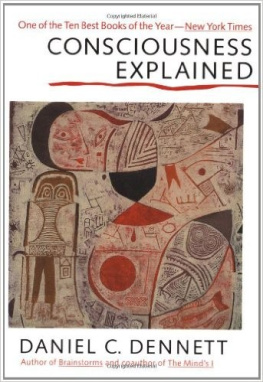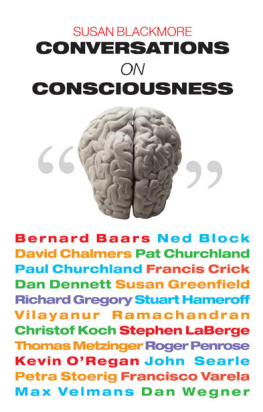Dennett - Sweet dreams : philosophical obstacles to a science of consciousness
Here you can read online Dennett - Sweet dreams : philosophical obstacles to a science of consciousness full text of the book (entire story) in english for free. Download pdf and epub, get meaning, cover and reviews about this ebook. City: Cambridge, Mass, year: 2005, publisher: A Bradford Book;MIT Press, genre: Romance novel. Description of the work, (preface) as well as reviews are available. Best literature library LitArk.com created for fans of good reading and offers a wide selection of genres:
Romance novel
Science fiction
Adventure
Detective
Science
History
Home and family
Prose
Art
Politics
Computer
Non-fiction
Religion
Business
Children
Humor
Choose a favorite category and find really read worthwhile books. Enjoy immersion in the world of imagination, feel the emotions of the characters or learn something new for yourself, make an fascinating discovery.
- Book:Sweet dreams : philosophical obstacles to a science of consciousness
- Author:
- Publisher:A Bradford Book;MIT Press
- Genre:
- Year:2005
- City:Cambridge, Mass
- Rating:3 / 5
- Favourites:Add to favourites
- Your mark:
Sweet dreams : philosophical obstacles to a science of consciousness: summary, description and annotation
We offer to read an annotation, description, summary or preface (depends on what the author of the book "Sweet dreams : philosophical obstacles to a science of consciousness" wrote himself). If you haven't found the necessary information about the book — write in the comments, we will try to find it.
In the years since Daniel Dennetts influential Consciousness Explained was published in 1991, scientific research on consciousness has been a hotly contested battleground of rival theories -- so rambunctious, Dennett observes, that several people are writing books just about the tumult. With Sweet Dreams, Dennett returns to the subject for revision and renewal of his theory of consciousness, taking into account major empirical advances in the field since 1991 as well as recent theoretical challenges.In Consciousness Explained, Dennett proposed to replace the ubiquitous but bankrupt Cartesian Theater model (which posits a privileged place in the brain where it all comes together for the magic show of consciousness) with the Multiple Drafts Model. Drawing on psychology, cognitive neuroscience, and artificial intelligence, he asserted that human consciousness is essentially the mental software that reorganizes the functional architecture of the brain. In Sweet Dreams, he recasts the Multiple Drafts Model as the fame in the brain model, as a background against which to examine the philosophical issues that continue to bedevil the field.With his usual clarity and brio, Dennett enlivens his arguments with a variety of vivid examples. He isolates the Zombic Hunch that distorts much of the theorizing of both philosophers and scientists, and defends heterophenomenology, his third-person approach to the science of consciousness, against persistent misinterpretations and objections. The old challenge of Frank Jacksons thought experiment about Mary the color scientist is given a new rebuttal in the form of RoboMary, while his discussion of a famous card trick, The Tuned Deck, is designed to show that David Chalmerss Hard Problem is probably just a figment of theorists misexploited imagination. In the final essay, the intrinsic nature of qualia is compared with the naively imagined intrinsic value of a dollar in Consciousness -- How Much is That in Real Money?
Dennett: author's other books
Who wrote Sweet dreams : philosophical obstacles to a science of consciousness? Find out the surname, the name of the author of the book and a list of all author's works by series.

